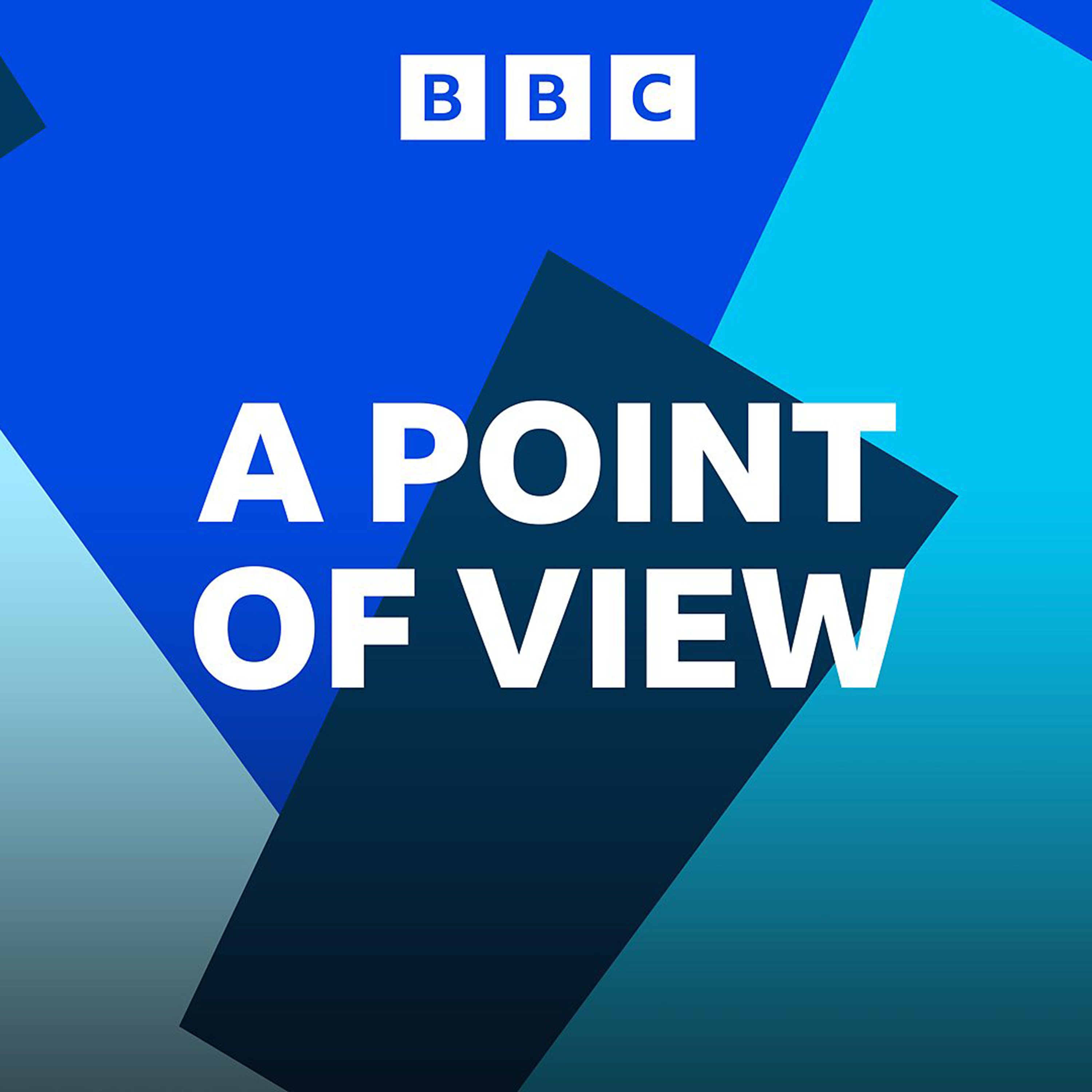

A Point of View
BBC Radio 4
A weekly reflection on a topical issue.
Episodes
Mentioned books

Jan 2, 2015 • 10min
The Pursuit of Happiness
A L Kennedy reflects on what it means to pursue happiness in a world where "not having enough money can be utterly miserable" and indulging our desire to acquire is also unsatisfying. The answer may lie in seeing that happiness is, "not so much a condition as a destination - it can inspire journeys ...better made in company".
Producer: Sheila Cook.

Dec 26, 2014 • 10min
Monarch's Message
David Cannadine reflects on the history of the Queen's Christmas message. Following the success of the first broadcast in 1932 by the Queen's grandfather, King George V, "what had begun as a one-off innovation" soon "became an invented tradition". "There can be no doubt," says Cannadine, "it brought the King closer to his subjects than had been true of any monarch who had gone before him."Producer: Sheila Cook.

Dec 19, 2014 • 10min
Art: The Real Thing
In the last of his three talks on art Roger Scruton asks what constitutes real art, as opposed to cliche or kitsch.He says we must ignore the vast quantities of art produced as commodities to be sold, in contrast to symphonies or novels that cannot be owned in the same way as a painting or a sculpture.Real art has to have lasting appeal, he argues, and for that it needs three things: beauty, form and redemption. The production of such art, he says, takes immense hard work and attention to detail, but it can give meaning to our modern lives and show love in the midst of doubt and desolation. Producer: Arlene Gregorius.

Dec 12, 2014 • 10min
Kitsch
Philosopher Roger Scruton looks at kitsch in the second of his three talks on art. Kitsch, he says, creates the fantasy of an emotion without the real cost of feeling it. He argues that in the twentieth century artists became preoccupied by what they perceived as the need to avoid kitsch and sentimentality. But it's not so easy. Some try being outrageously avant-garde, which can lead to a different kind of fake: cliche. So a new genre emerged: pre-emptive kitsch. Artists embraced kitsch and produce it deliberately to present it as a sophisticated parody. But is it art? Producer: Arlene Gregorius.

Dec 5, 2014 • 10min
Faking It
Philosopher Roger Scruton reflects on the difference between original art that is genuine, sincere and truthful, but hard to achieve, and the easier but fake art that he says appeals to many critics today. He argues that original artists from Beethoven and Baudelaire to Picasso and Pound tower above those contemporary artists whose pieces push fake emotion - and who, by focusing on avoiding cliche, end up cliches themselves. Producer: Arlene Gregorius.

Nov 28, 2014 • 9min
Thinking the Unthinkable
John Gray argues that "thinking the unthinkable" as a way of making policy does nothing more than extend conventional wisdom to the point of absurdity and fails to take account of the complexities of reality. "Capitalism has lurched into a crisis from which it still has not recovered. Yet the worn-out ideology of free markets sets the framework within which our current generation of leaders continues to think and act."Producer: Sheila Cook.

Nov 21, 2014 • 9min
Dostoevsky and Dangerous Ideas
John Gray points to lessons from the novels of Dostoevsky about the danger of ideas such as misguided idealism sweeping away tyrannies without regard for the risks of anarchy. "Dostoevsky suggests that the end result of abandoning morality for the sake of an idea of freedom will be a type of tyranny more extreme than any in the past."
Producer: Sheila Cook.

Nov 14, 2014 • 9min
Soylent and the Charm of the Fast Lane
The new food substitute Soylent allows you to give up eating meals in order to have more free time. But John Gray argues that human beings crave busy lives. We want to be distracted, he says, so we don't have to think too much.Producer: Adele Armstrong.

Nov 7, 2014 • 9min
Capitalism and the Myth of Social Evolution
John Gray reflects on why the advance of capitalism is not - as is widely believed - inevitable. He argues that social evolution is often unpredictable and that the "seemingly unstoppable advance of market forces" could well be halted by political decisions and the "random flux of human events".Producer: Adele Armstrong.

Oct 31, 2014 • 10min
Cures for Anxiety
Adam Gopnik identifies four different types of anxiety that afflict modern people and suggests ways to cure them. "The job of modern humanists is to do consciously what Conan Doyle did instinctively: to make the thrill of the ameliorative, the joy of small reliefs, of the case solved and mystery dissipated and the worry ended, for now - to make those things as sufficient to live by as they are good to experience."Producer: Sheila Cook.


